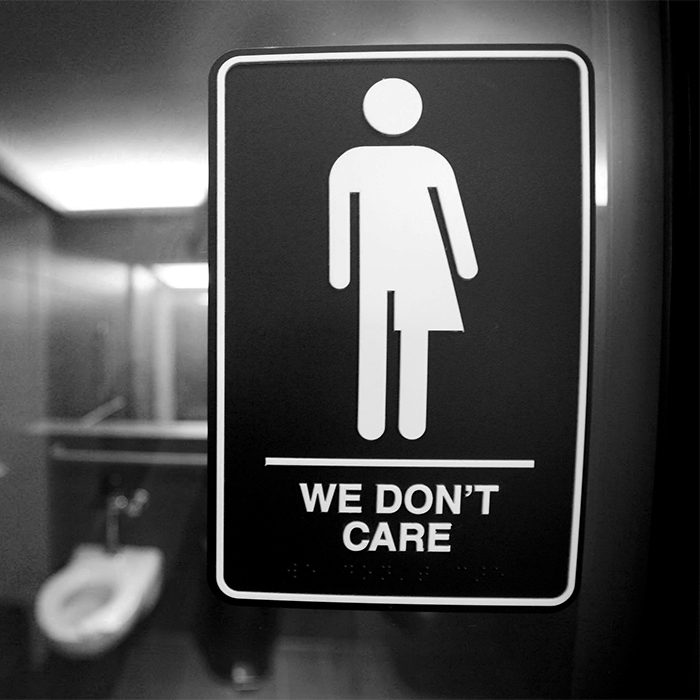Written by Jenna Dreisenstock
Within our turbulent political climate, it’s beautifully refreshing to see so many music venues and organisers adhering to their obligations as they work toward making their spaces safe for all. Unfortunately, this cannot be stated overall – however the growth of organizers evolving and taking full responsibility in making changes to their environments, releasing statements regarding that they stand as all inclusive to all orientations of people – are huge strides in the right direction. Regardless of how difficult it may be to deal with the intricacies of awful, toxic backlash by bigoted human beings in this world, these organisers and venues have been stepping up to the plate. However, a noticeable issue – especially in the area in which I live – is the lack of inclusivity for transgender and non-binary folks.
Many international organisers for music venues have publicly stated their support for the LGBT community and have been making genuine efforts to make sure the community feels safe within their walls. However, as we move further toward true inclusivity in the face of adversity and stand together in solidarity – why is it that in many venues still refuse to recognise the ‘T’ in LGBT? There are of course fantastic venues who have stated their inclusivity of folks of all gender-orientations: yet a seemingly insignificant, but actually majorly significant issue continues to be brought up – unisex bathrooms. I often want to scream in frustration because, my goodness. Why is it so difficult for organisers / venues to simply wrap their heads around this idea? If we are truly in support of all gender-orientations, then how is it that venues can exclude such a crucial part of this inclusivity?
As it stands, the majority of us are aware that the male / female binary is completely nonsensical in its very construct. Of course, there are bigoted, homophobic and transphobic people who will disagree with me – I truly hope they are able to recognise basic human rights someday. These binaries, filing people into set groups that shall determine who they are, how they should act in the eyes of society – based on genitalia: when put into perspective, is probably one of the most ridiculous concepts so difficult to even fathom. In this sense, inclusivity means destroying the idea that someone is defined by that concept – and where else are we to shift our focus than bathrooms?
For transgender and non-binary folk, the concept of which bathroom to enter is something that may seem small to those who do not identify as such – but it is a serious issue. As an example, for transgender womxn; not only does the lack of unisex bathrooms attribute to feeling horribly alienated, it puts them in direct danger: the combination of homophobia, transphobia and misogyny can turn to harassment and assault. Transgender womxn who are forced into a male-binary bathrooms often find themselves insulted, degraded or accosted by men who still seep toxicity – this also applies to male-identifying folk who present as more ‘traditionally’ feminine. However, we may say well of course transgender womxn are womxn! So obviously they should feel safe using the ‘female’ binary bathroom – but they simply do not in many instances, as the transphobia (specifically in this case, transmisogyny) runs so deep even cis womxn (womxn who still identify as the gender assigned at birth) cause a fuss over these folks perceived gender.
To feel as though one doesn’t belong, especially in such a basic space in which all humans deserve access to without fear or alienation: I can barely put my sadness, or my disgust into words. However, to sum it up – if a venue is truly going to be inclusive for all – the female / male binary bathrooms are not safe for people of any gender orientation, and if organizers do not take this into account, make the active decision to install unisex bathrooms and change the ways in which these venues operate; not only are they not an inclusive space at all – but they are actively deciding to put their patrons in danger.



